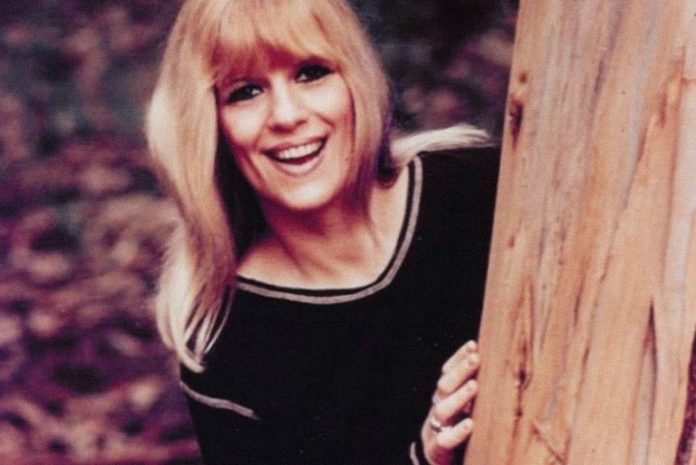In the music business there are two distinct types, the music makers and the Music interpreters. That is the performers and singers and those who write the music and lyrics. Ellie Greenwich was both. Bur her writing abilities overshadowed her singing.
Greenwich was born Eleanor Louise Greenwich in Brooklyn, New York. She was reportedly named for Eleanor Roosevelt. Her musical interest was sparked as a child when her parents played music in their home, and she learned how to play the accordion at a young age. At age ten, she moved with her parents and younger sister, Laura, to the suburb of Levittown, New York.
By her teens, Greenwich was composing songs; eventually she taught herself to compose on the piano rather than the accordion. In high school, Greenwich and two friends formed a singing group, The Jivettes, which took on more members and performed at local functions.
After graduating high school, Greenwich enrolled at the Manhattan School of Music but was rejected because the school did not accept accordion players, and she subsequently enrolled at Queens College.
At 17, around the time she began attending Queens College, Greenwich recorded her first single for RCA Records, the self-written “Silly Isn’t It”, backed with “Cha-Cha Charming.
The single was issued under the name “Ellie Gaye” (which she chose as a reference to Barbie Gaye, singer of the original version of “My Boy Lollipop”). However, a biography about Greenwich claimed that the name was changed by RCA Records to prevent mispronunciations of “Greenwich”. “Cha-Cha Charming” was released in 1958 and indirectly led to her decision to transfer from Queens College to Hofstra University after one of her professors at the former institution belittled her for recording pop music.
In 1959, still at college, Greenwich met the man who became her husband and main song writing partner. Although it is possible they had been acquainted as children, since they shared a relative, the first time Greenwich and Jeff Barry met formally as adults was at a Thanksgiving dinner hosted by her maternal uncle, who was married to Barry’s cousin. Greenwich had brought her accordion, and she and Barry recognized their mutual love of music. Romance was not yet in the air as Barry was married to his first wife, who was at the dinner. Yet within a couple of years, the husband-and-wife song writing team of Jeff Barry and Ellie Greenwich were among the most successful and prolific of Brill Building composers.
In 1962, Greenwich got her first break in the business when she traveled to the Brill Building to meet John Gluck, Jr., one of the composers of the Lesley Gore hit “It’s My Party”. Needing to keep another appointment, Gluck installed Greenwich in an office and asked her to wait. The office turned out to be that of songwriter-producers Jerry Leiber and Mike Stoller. Hearing piano music from the cubicle, Leiber poked his head in and, expecting Carole King, was startled to see Greenwich, who introduced herself and explained her reasons for being there. Recognizing her potential as a songwriter, Leiber and Stoller agreed to allow her to use their facilities as she wished in exchange for first refusal on songs she wrote. They eventually signed Greenwich to their publishing company, Trio Music, as a staff songwriter.
On October 28, 1962, Barry and Greenwich married, and shortly afterwards decided to write songs exclusively with each other — a decision that disappointed Tony Powers[2] as well as Barry’s main writing partner, Artie Resnick. Barry was subsequently signed to Trinity Music, and he and Greenwich were given their own office with their names on the door. Before the end of 1963, Barry-Greenwich had scored hits with songs such as “Be My Baby” and “Baby, I Love You” (The Ronettes), “Then He Kissed Me” and “Da Doo Ron Ron” (The Crystals), “Not Too Young To Get Married” (Bob B. Soxx & the Blue Jeans), and “Christmas (Baby Please Come Home)” by Darlene Love, all co-written and produced by Phil Spector. Greenwich and Barry also recorded singles and an album under the name The Raindrops, with Greenwich providing all the female vocals through overdubbing, and Barry singing backgrounds in a bass voice. In addition to “What A Guy” (actually a demo, with Greenwich on piano and Barry on drums, sold to Jubilee Records and released as the first Raindrops single) and the U.S. Top 20 hit “The Kind Of Boy You Can’t Forget,” the couple wrote and recorded “Hanky Panky”, which later became a hit for Tommy James and the Shondells in 1966 and, in 1964, “Do Wah Diddy Diddy”, was taken to the No. 1 spot on the charts, in both the UK and the US, by Manfred Mann. Toward the end of 1963, the Raindrops recorded “That Boy John”, a catchy fusion of jazz and rhythm and blues that reached the middle of the charts.
When Red Bird Records was founded in 1964 by Leiber and Stoller, Barry and Greenwich were brought in as songwriters and producers. The label’s first release was The Dixie Cups’ “Chapel of Love” (written with Phil Spector and originally recorded by The Ronettes), which sailed up the U.S. charts to No. 1. Barry and Greenwich continued to write and/or produce hits for Red Bird, including several other releases by The Dixie Cups as well as The Ad-Libs (“He Ain’t No Angel” and “Remember”), The Jelly Beans (“I Wanna Love Him So Bad”), and The Shangri-Las (“Leader of the Pack”).
However, the couple’s marriage could not be saved; before the end of the year, Barry and Greenwich divorced. The couple continued to work together for much of 1966, partly due to Greenwich’s discovery of a talented singer-songwriter named Neil Diamond. Barry, Greenwich and Diamond joined to form Tallyrand Music to publish Diamond’s songs. Diamond was subsequently signed to Bert Berns’s Bang Records, and had a number of hits such as “Cherry Cherry” and “Kentucky Woman”, all produced by Barry and Greenwich, who also sang backgrounds on many tracks. In addition, Barry and Greenwich teamed with Phil Spector one last time to pen “I Can Hear Music”, recorded by The Ronettes in 1966, which was their final single for the Philles label, and by The Beach Boys in 1969; and “River Deep – Mountain High”, which Spector produced for Ike and Tina Turner, although Ike was officially banned from the studio recording. Although “River Deep” peaked at #3 in the UK, the song was a commercial failure in the US, stalling at #88.
On August 26, 2009, Greenwich died of a heart attack at St. Luke’s Roosevelt Hospital, New York City, where she had been admitted a few days earlier for treatment of pneumonia.























